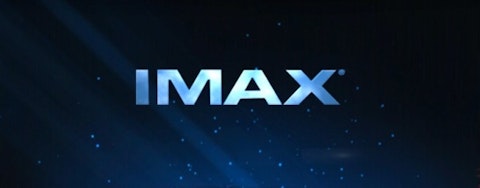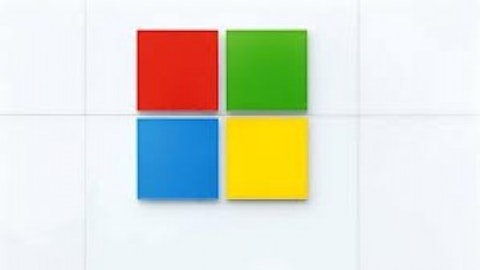In 2002, movie tickets sold reached a record breaking 1.58 billion tickets. Fast forward to 2011, and ticket sales are down to 1.30 billion, the worst year in recent movie history. 2012, however, looked to be a hopeful year in an industry that in the past decade only saw tickets sales rise twice. IMAX Corporation (USA) (NYSE:IMAX) has been able to turn a profit during this time and is looking to be increasing that profit for years to come. IMAX Corporation (USA) (NYSE:IMAX) could be a good play in the always surprising entertainment industry.

2012 was a record setting year for the movie industry. Ticket sales were a record setting $10.8 billion in 2012 and attendance rose for the first time in three years, up 20% from last year. There were 1.36 billion total tickets sold in 2012, helped by blockbusters like The Hobbit, The Avengers, and Skyfall. Estimates are calling for 2013 to be another year of growth for the movie industry. Upcoming movies including Thor, The Hunger Games, and Iron Man should provide good box office tickets sales that are in estimates of $11 billion in sales and ticket sales to be around 1.43 billion. This would be the first time the movie industry saw ticket sales rise two years in a row since 2001 and 2002.
The Competition
IMAX’s biggest competition is Regal Entertainment Group (NYSE:RGC) . Regal is the largest theater chain in the US. Regal operates over 6,800 screens in over 500 locations. Right now Regal is selling at a P/E of 20, more fairly priced than IMAX. Regal, however, cannot compete with IMAX’s operating margin with RGC operating at 11% and their profit margin of 4% is dwarfed by IMAX’s 12.9%. Regal has a solid foothold on the general theatre business but cannot compete with IMAX’s niche of large theaters. With a quarterly revenue growth of -6% during the same period of IMAX’s growth of 21% Regal is looking to be on a downslide even though at the same time IMAX can continue to grow its business.
Why IMAX Corporation (USA) (NYSE:IMAX) Is a Buy
With 2011 being one the worst years for the theatre industry, and more and more digital ways for people to get movies right in their home, why would investing in a theatre company right now be a good idea? Well for the same reason people still go out for dinner or coffee when they can make dinner or coffee at home; you cannot replace something like IMAX by buying a home theatre system. The experience itself, however, is not the only reason to buy IMAX; they are in a good position to expand their business not only in the US but also overseas. IMAX’s revenue is up quarter over quarter from 2011, since movie releases are very seasonal you can look at this like a steady revenue increase even though quarter for quarter earnings varies. EPS has followed the same trend with the latest earnings being up to $0.23 per share. IMAX has been able to get anywhere from 12% to 20% of box office sales giving them an operating margin of 18.59% for 2012. With a debt of just $30 million, this gives IMAX room to keep building their theaters.
IMAX increased its total operated theaters to 697 in 2012 in a total of 52 countries. In the past three years IMAX has signed deals to build around 500 new theaters, some of which still have yet to be built. In the next two years IMAX projects to have a total of over 800 theaters. They also expect operating margin to keep rising based on the increasing trend they are experiencing right now.
| 2013 | 2014 | |
| Operating Margin | 33.4% | 38.1% |
| Total Revenue | $341 | $422 |
| Earnings from operations | $114 | $178 |
| Total Theaters | 737 | 857 |
Conclusion
With Imax’s plan for growth backed by increasing box office sales worldwide, IMAX is poised to grow in the next few years. 2013 should be a good year for movies with big name sequels like Iron Man 3 and Star Trek 2 due to be released. This means that Imax should have at least a good year in 2013, but is a good value play for a re-emerging theater market.
The article Will IMAX Be Able to Beat the Market? originally appeared on Fool.com and is written by Howard Cranford.
Copyright © 1995 – 2013 The Motley Fool, LLC. All rights reserved. The Motley Fool has a disclosure policy.


